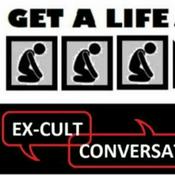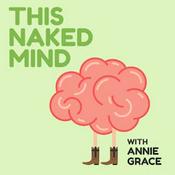216 episodes
- “When do we get a whack at those Germans?”
This is the story of America’s entry into the European Theater. After Pearl Harbor, American foot soldiers and generals alike are eager to get in on the action in Europe, but first, they have to cross the embattled Atlantic—easier said than done with German U-boats on the prowl, sinking both military and merchant vessels in what they call an “American turkey shoot.” After stubborn U.S. Navy Admiral Ernest King finally adopts a workable convoy system, the boys are on their way to the UK, but it’s their next destination that’s really hotly debated.
U.S. Chief of Staff George C. Marshall advocates for a direct assault on France in 1942, (a plan supported by a desperate Stalin), but Churchill and co. favor a Mediterranean approach, coming up through the “soft underbelly” of Europe and avoiding turning the English Channel into “a river of blood.” And yet, whatever the high command decides, newly trained American troops will soon arrive in Ireland under the command of Dwight D. “Ike” Eisenhower, an organizationally brilliant and formerly frustrated desk jockey, now commander of all U.S. forces in Europe. ____
Connect with us on HTDSpodcast.com and
go deep into episode bibliographies and book recommendations
join discussions in our Facebook community
get news and discounts from The HTDS Gazette
come see a live show
get HTDS merch
or become an HTDS premium member for bonus episodes and other perks.
HTDS is part of Audacy media network. Interested in advertising on the History That Doesn't Suck? Contact Audacyinc.com.
To learn more about listener data and our privacy practices visit: https://www.audacyinc.com/privacy-policy
Learn more about your ad choices. Visit https://podcastchoices.com/adchoices - A new episode of History That Doesn't Suck drops Monday, February 16th. It’s a continuation of our ongoing chronicle of World War II and we’ll be shifting back to the European Theater. While we put the finishing touches of episode 199, we're pleased to share a sports themed show from our network partners at Audacy.
Step inside the mind of NFL legend Von Miller as he goes free range — from the gridiron to the culture at large. Each week, Von breaks down the biggest football stories, dives into the world of sports and entertainment, and chops it up with athletes, artists, and trendsetters shaping the conversation. Equal parts football IQ, locker room energy, and societal curiosity, Free Range is where game meets culture, and no topic is off-limits. You might even get some inside nuggets on this Super Bowl MVP’s chicken farm!
To learn more about listener data and our privacy practices visit: https://www.audacyinc.com/privacy-policy
Learn more about your ad choices. Visit https://podcastchoices.com/adchoices - “It was almost unbelievable, but I was seeing it. Almost simultaneously, three [Japanese] carriers were wiped out. I knew what it meant. By golly, we did it!”
This is the story of a battle that changed how wars are fought at sea—and of the thin margin between disaster and destiny. In the spring of 1942, Japanese forces surge across the Pacific, confident their next move will finish what Pearl Harbor began. But beneath the surface, American codebreakers are listening, watching, and waiting.
Fresh from the hard-fought Battle of the Coral Sea, the U.S. Navy limps forward with damaged carriers, exhausted pilots, and an untested commander named Chester Nimitz. Across the ocean, Admiral Yamamoto Isoroku sets an intricate trap meant to lure America’s carriers into annihilation near a tiny atoll called Midway.
What follows is not a clash of battleships, but a duel fought primarily in the air—where minutes matter, mistakes are fatal, and pilots will dive straight into fire with no idea if they’re already too late.
By the morning of June 4, 1942, both sides believe victory is within reach. Only one is right.
____
Connect with us on HTDSpodcast.com and
go deep into episode bibliographies and book recommendations
join discussions in our Facebook community
get news and discounts from The HTDS Gazette
come see a live show
get HTDS merch
or become an HTDS premium member for bonus episodes and other perks.
HTDS is part of Audacy media network. Interested in advertising on the History That Doesn't Suck? Contact Audacyinc.com.
To learn more about listener data and our privacy practices visit: https://www.audacyinc.com/privacy-policy
Learn more about your ad choices. Visit https://podcastchoices.com/adchoices - “We had been promised relief but none was coming, and all of us in Bataan shared a sense of betrayal.”
This is the story of the United State’s earliest—and most disastrous—days of war in the Pacific.
Almost immediately following Pearl Harbor, America and the Axis powers exchange rapid-fire war declarations. While embattled Britain breathes a sign of relief to have the US officially in the war, the Japanese Empire’s sun is rising on the Pacific fast—and at great cost to the Philippines. As the Commonwealth’s islands fall one by one, General Douglas MacArthur is forced to beat a hasty retreat. He evacuates to Australia and pledges to return; but what of the American and Filipino forces cornered on a small peninsula on Luzon? Well, they’re not called the “Battling Bastards of Bataan” for nothing. But there’s only so much they can do without outside support. Many thousands of POWs will be murdered or massacred in the post-surrender Bataan Death March of April 1942.
Amid these defeats and the ensuing crisis of morale, Washington concludes a successful counterattack on the Japanese home islands just might be the psychological win that America needs. Lieutenant Colonel James “Jimmy” Doolittle will lead an air attack… on Tokyo itself.
____
Go to squarespace.com/HTDS for a free trial and use the offer code HTDS to save 10% off your first purchase of a website or domain from our advertising partner Squarespace.
Connect with us on HTDSpodcast.com and
go deep into episode bibliographies and book recommendations
join discussions in our Facebook community
get news and discounts from The HTDS Gazette
come see a live show
get HTDS merch
or become an HTDS premium member for bonus episodes and other perks.
HTDS is part of Audacy media network.
Interested in advertising on the History That Doesn't Suck? Contact Audacyinc.com.
To learn more about listener data and our privacy practices visit: https://www.audacyinc.com/privacy-policy
Learn more about your ad choices. Visit https://podcastchoices.com/adchoices - With the December 1941 surprise attack on the US naval base Pearl Harbor in Hawaii, our story has officially come to the United States’ entry into the Second World War. Professor Jackson told that story in episode 194, and in 193 we covered the long buildup to the war with Japan; yet, the attack on Pearl Harbor is one of those moments of history where the depths of inquiry and knowledge to be gained is almost endless. There is still more to learn.
To that end, Prof. Greg Jackson welcomes Professor Lindsey Cormack, an associate professor of political science at Stevens Institute of Technology, and Steve Twomey, Pulitzer Prize–winning journalist and author of Countdown to Pearl Harbor: The Twelve Days to the Attack.
Also, Prof. Jackson officially announces his new book, Been There Done That: How Our History Shows What We Can Overcome. In the book, Prof. Jackson proves that while today’s political climate may be dark, these aren’t as unprecedented times as we may think. Now available for pre-order. Or get a complimentary signed advance copy during the ultimate book launch party May 18–22, 2026 aboard a Celebrity Cruise to Key West and The Bahamas with Prof. Jackson and other fellow history travelers!
Connect with us on HTDSpodcast.com and
go deep into episode bibliographies and book recommendations
join discussions in our Facebook community
get news and discounts from The HTDS Gazette
come see a live show
get onboard the VIP Caribbean Cruise
get HTDS merch
or become an HTDS premium member for bonus episodes and other perks.
To learn more about listener data and our privacy practices visit: https://www.audacyinc.com/privacy-policy
Learn more about your ad choices. Visit https://podcastchoices.com/adchoices
More Education podcasts
Trending Education podcasts
About History That Doesn't Suck
HTDS is a bi-weekly podcast, delivering a legit, seriously researched, hard-hitting survey of American history through entertaining stories. To keep up with History That Doesn’t Suck news, check us out htdspodcast.com or follow on Facebook and Instagram: @Historythatdoesntsuck. Become a premium member to support our work, receive ad-free episodes and bonus episodes.
Take a special VIP cruise with Prof. Jackson May 18-22, 2026
Pre-order Prof. Jackson's new book Been There Done That: How Our History Shows What We Can Overcome
Podcast websiteListen to History That Doesn't Suck, The Jefferson Fisher Podcast and many other podcasts from around the world with the radio.net app
Get the free radio.net app
- Stations and podcasts to bookmark
- Stream via Wi-Fi or Bluetooth
- Supports Carplay & Android Auto
- Many other app features
Get the free radio.net app
- Stations and podcasts to bookmark
- Stream via Wi-Fi or Bluetooth
- Supports Carplay & Android Auto
- Many other app features

History That Doesn't Suck
Scan code,
download the app,
start listening.
download the app,
start listening.






































